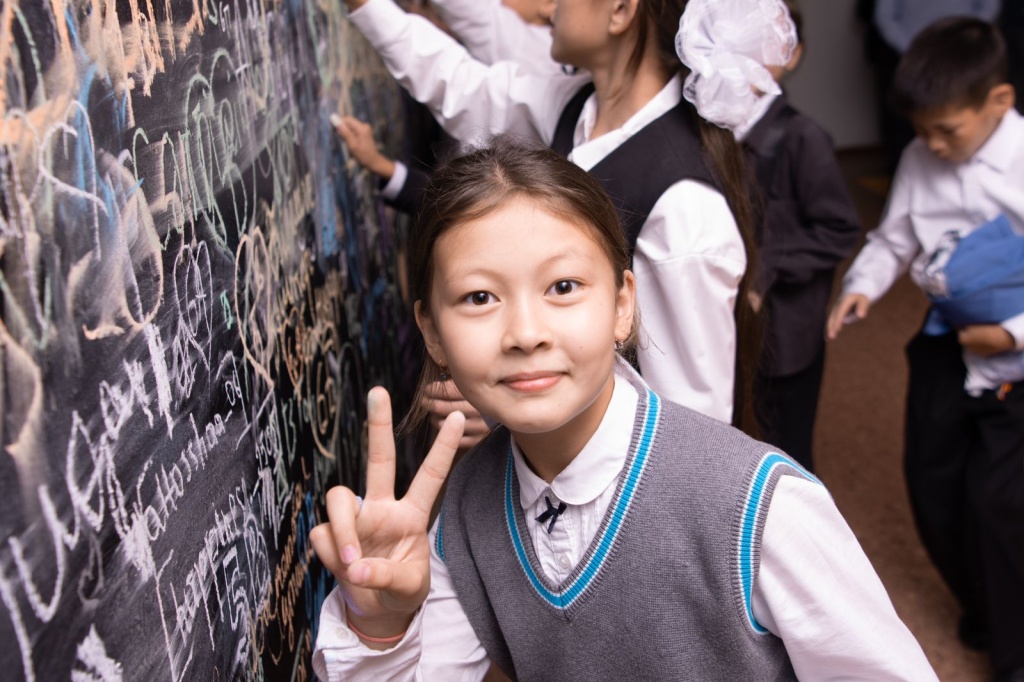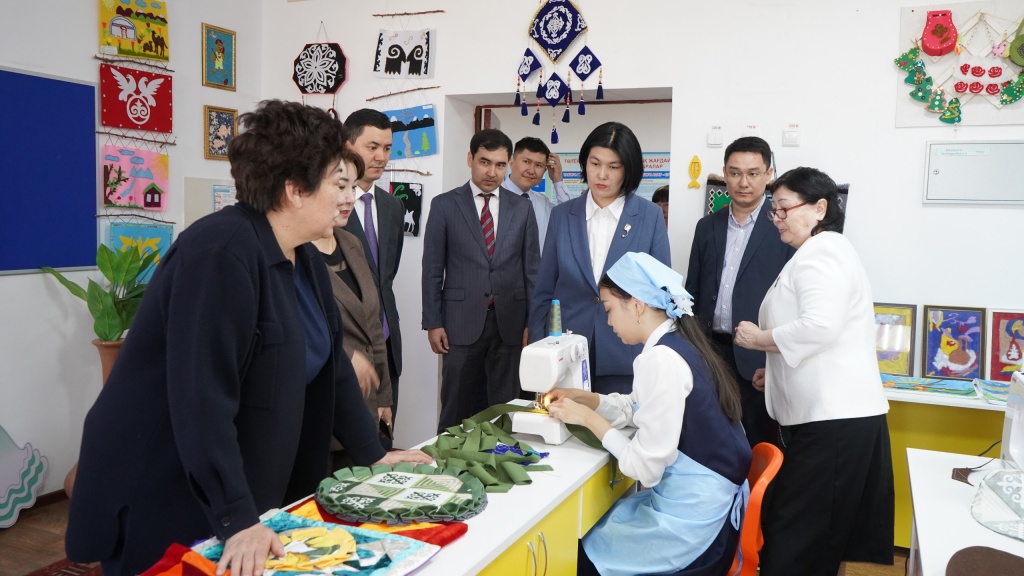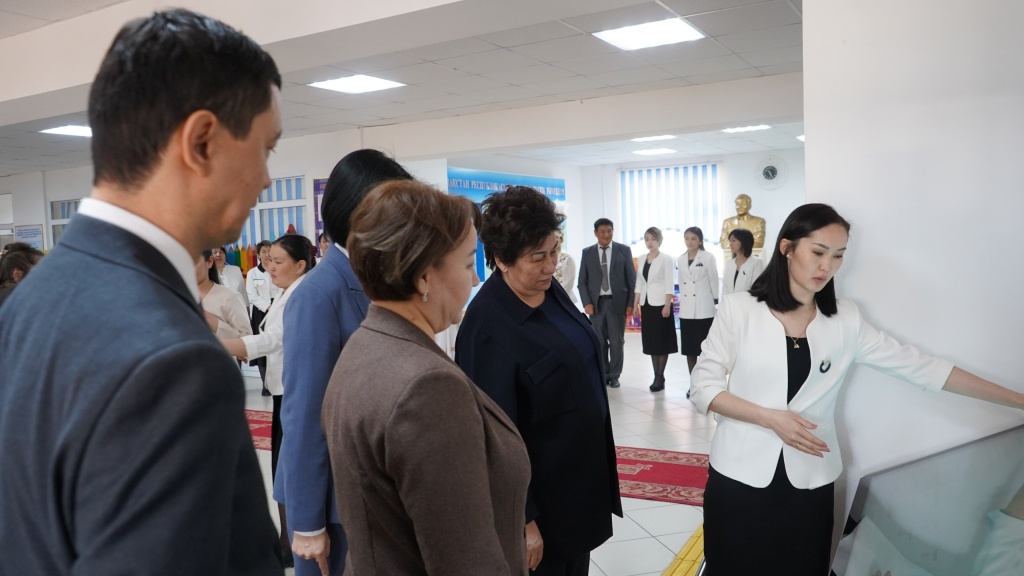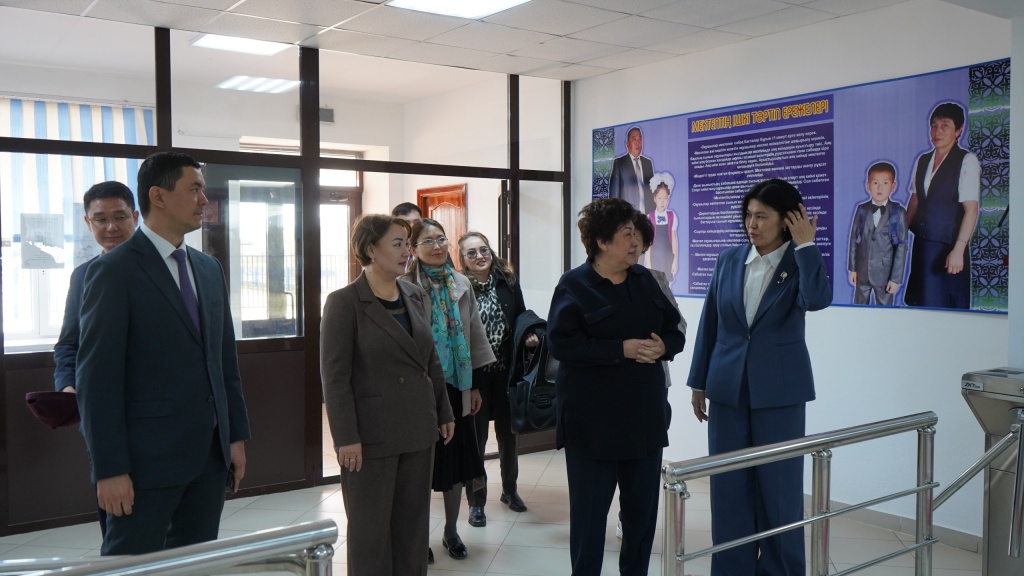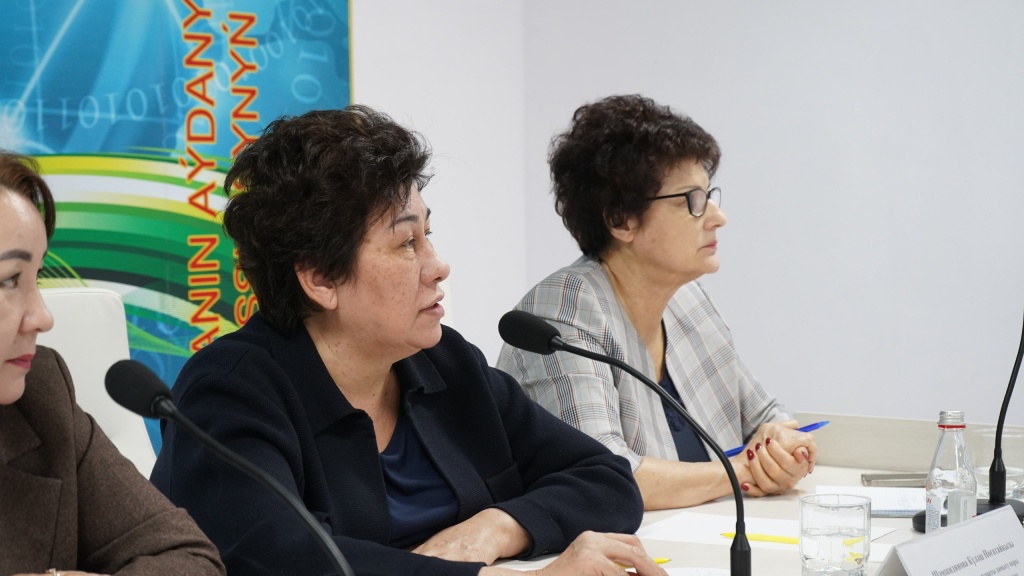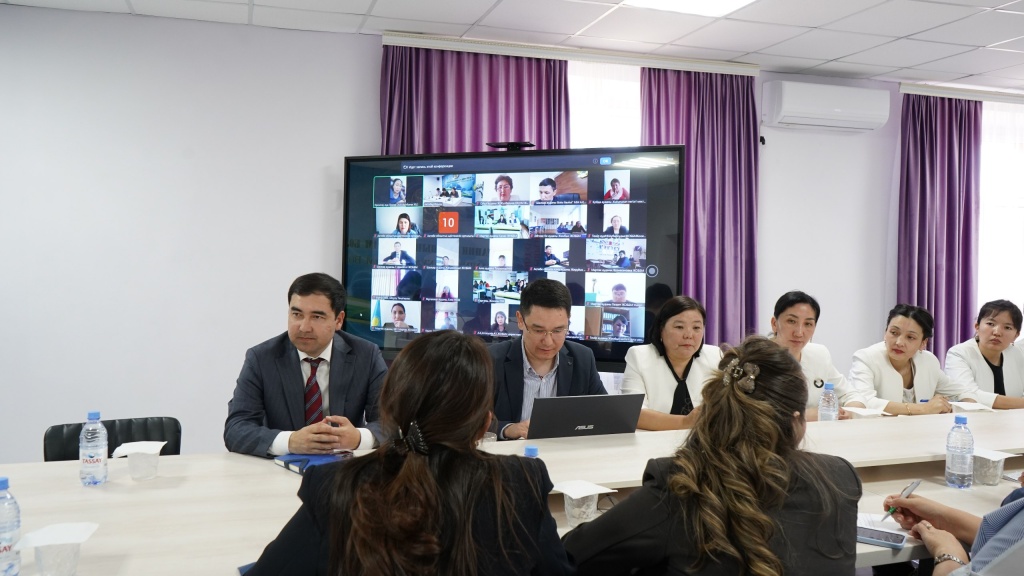Teacher Shortage: How Is the Issue Being Addressed in Remote Villages of the Aktobe Region?
Chair of the Board of Trustees of the Fund for Sustainable Development of Education, Kulyash Shamshidinova, visited rural schools in the Aktobe region.
Together with the head of the Regional Department of Education, Bulbul Kuzembayeva, Kulyash Shamshidinova reviewed the work of several educational institutions in the Bayganin district. At the T. Zharmagambetov Secondary School, they observed laboratory classrooms, students' scientific and research projects, the art studio, TV studio, library, and technology rooms showcasing students’ creative works. They also joined an online lesson conducted by physics teacher Sherkhan Kozybaiuly, designed for students of small rural schools.
Later, the delegation visited a magnet small school in the village of Kokbulak, where they became familiar with the educational process and the role of assistant teachers. The school demonstrated its use of digital tools and efforts toward teachers’ professional development.
A meeting was also held with principals of hub and magnet schools. The discussion focused on experience sharing, establishing professional networks, and improving education quality in remote schools through digital platforms. Participants voiced their suggestions and offered ideas to further enhance the project.
Kulyash Shamshidinova, Chair of the Board of Trustees of the Fund for Sustainable Development of Education, emphasized that the initiative to provide quality education to children in rural areas will continue. The project clearly demonstrated that the issue of teacher shortages in remote settlements can be addressed through the expertise of teachers from hub schools and the use of modern digital technologies.
